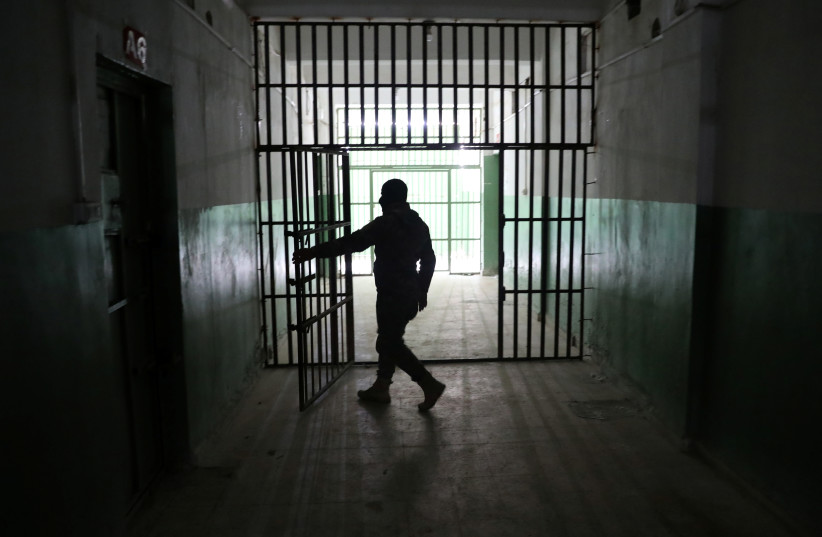Terrorist Walid Daqqah is set to have a parole hearing on Wednesday for his early release due to deteriorating health, and not only were the family not informed about the proceedings, but the parole hearing is being streamlined, the niece of Daqqah’s victim told The Jerusalem Post yesterday.
“My uncle’s murderer has more time in prison, but is sick and requested to be released to the hospital,” said Ortal Tamam, niece of IDF soldier Moshe Tamam, who was kidnapped and murdered by Daqqah’s terrorist cell in 1984. “No one told us.”
Tamam said that, instead of being informed by the authorities according to law, they were tipped off about the impending hearing by an attorney when the Popular Front for the Liberation of Palestine (PFLP) terrorist’s name was mentioned during a hearing on another matter.
Terrorist murderers usually have parole hearings before a special committee, while other inmates are heard by regular committees, said Tamam. She explained that testimonies from the Shin Bet and families needed to be given in special parole committees, but for unknown reasons Daqqah’s case would be heard before a regular parole committee. The victim’s niece said that Daqqah has a much better chance of release before a regular parole board.

“Instead of paying for what he’s done, he’s being released early” at the expense of the family, said Tamam. She said that, on top of all that the family has suffered, they now need to fight this battle.
Tamam said “Everyone is shifting responsibility,” in response to inquiries about the family not being informed, and about Daqqah’s placement before a regular parole committee at 8 a.m. Wednesday.
“Its not just that they’re trying to release him behind our backs, its about how Israel treats terrorists,” said Tamam. Daqqah has “become a hero and leader of prisoners,” she explained. “He has been turned into a symbol against Israel” and “does whatever he wants in prison.”
Walid Daqqah's sperm smuggling
According to the Samidoun Palestinian Prisoner Solidarity Network, which is said by Israel to be a front of the PFLP, Daqqah earned a master’s degree in political science and published books while in prison. The terrorist fathered a child with “liberated semen,” said Samidoun, seminal fluid smuggled out of a prison and used to impregnate his wife, who he married during his imprisonment. A play based on Daqqah’s life and writings was produced at the Haifa Al Midan theater.
“Since he’s been in prison, he’s using his charisma against Israel,” said Tamam. “Because of this, we need to be against his release. He hasn’t done any repentance, he’s continued to support terrorism in prison.”
Multiple Palestinian organizations have championed Daqqah as a cultural and political icon. In March, the Palestinian Human Rights Organizations Council submitted an appeal to the United Nations for his release.
Samidoun, which campaigns for the terrorist’s release, said that Daqqah suffers from bone marrow cancer, and on Monday the terrorist had been transferred to Shamir Medical Center.
Walid Daqqah's crimes
Daqqah was sentenced in 1986 to life in prison, but had this sentence reduced to 37 years and was given another two years for involvement with smuggling cellphones into prison. He was part of a PFLP cell that kidnapped Moshe Tamam and attempted to smuggle the soldier from Israel to Syria, where they could use him as a bargaining chip.
When they were unable to do so, the terrorist squad tortured and executed him.
Ortal Tamam wrote on Facebook on Monday that the details of the torture in the court transcripts made her physically ill. She accused Daqqah on Tuesday of making the decision to murder her uncle.
“He was the commander of a terrorist group that decided to kidnap a 19-year-old soldier not far from my grandparent’s home,” she said, adding that her family continues to suffer from the act today.
“We paid our price for the State of Israel, now we’re fighting to stop the creation of the next victim,” said Tamam. “If this man is released early, it will be a message to everyone that support for terrorism pays.”
Tamam called on the public to spread awareness about the issue as soon as possible, to create pressure on those who can influence the denial of his parole. She called on National Security Minister Itamar Ben-Gvir and Justice Minister Yariv Levin to take action. A spokesperson for Levin said that the minister didn’t have any direct means to intervene in the matter.
On Monday, the State Attorney’s Office said that it would act against Daqqah’s release. Likud MK May Golan said on Tuesday morning that terrorists like Daqqah, who “have blood on their hands “should not be forgiven or given early release.
“Israel needs to fight strongly against terrorism if we want peace,” said Tamam. “It doesn’t matter who you voted for or didn’t vote for, the fight against terrorism is important for everyone.”
